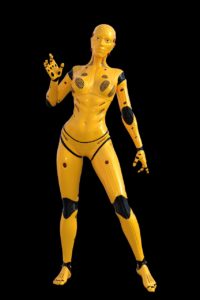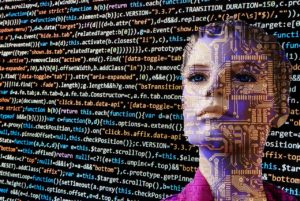The convergence of Artificial Intelligence and Internet of Things.
 Artificial intelligence has long been a fantasy for humans as we long for the days that robots would become smarter and perform some of our daily mundane tasks for us. The IoT (internet of things) industry offers a glimpse of hope into this world through the phenomenon of fitting a microchip on everyday objects around us and effectively making them smart objects.
Artificial intelligence has long been a fantasy for humans as we long for the days that robots would become smarter and perform some of our daily mundane tasks for us. The IoT (internet of things) industry offers a glimpse of hope into this world through the phenomenon of fitting a microchip on everyday objects around us and effectively making them smart objects.
IoT has recently received a lot of interest from industry leaders who are working on new technologies to develop for the future. It is a complex industry that requires synergetic efforts from device manufacturers and communication protocol developers.
The surge in the IoT sector is as a result of the capabilities to manufacture low-cost hardware for devices and the advancements made in wireless sensor technology. However there is a growing concern when it comes to interoperability as most of the device manufacturers adopt a proprietary communication protocol, which makes integration very difficult. Furthermore, the huge volume of data that IoT applications are associated with brings up a new challenge to existing information systems.
This challenge also carries a silver lining in it as it provides the system with a lot of data to perform extensive data analytics that could be turned into a value preposition. Given the complex nature of IoT applications, special design requirements need to be considered in order to effectively apply this technology in the real world.
The million-dollar question here is how to effectively put this technology into use in a manner in which it would improve people’s life or level of productivity. Smart homes are perhaps the surest next innovative ground for IoT, this is because it has the potential to spawn new lines of products and services in areas such as security cameras, smoke detectors and kitchen appliances. This sector is also exciting because of its direct impact and the value it offers like reduced energy bills and effective home monitoring.
 There has also been tremendous achievement in artificial intelligence and deep learning. These advancements has proven that cognition and thought expression could be accomplished by a computer and special applications such as robotics, image processing, vision, and speech recognition have also been realized. All of the empirical evidence points to the conclusion that the integration of advancement in artificial intelligence with IoT represents the future in the evolution of technology.
There has also been tremendous achievement in artificial intelligence and deep learning. These advancements has proven that cognition and thought expression could be accomplished by a computer and special applications such as robotics, image processing, vision, and speech recognition have also been realized. All of the empirical evidence points to the conclusion that the integration of advancement in artificial intelligence with IoT represents the future in the evolution of technology.
The future is full of smart home devices that you will control with voice commands, gestures or cognitive expression as a new form of user interactions. This is the reason behind the success of the Amazon Echo, which is a voice, controlled home speaker that uses natural language processing to understand people talking to it from across the room. The future home is going to be an intelligent one that monitors temperature, air quality and even recognize the people that live in the house, and all of these amazing features would be controlled not just from your smartphone application but via voice commands and gestures.
It probably won’t be long before the fantasy of artificial intelligence becomes reality.


